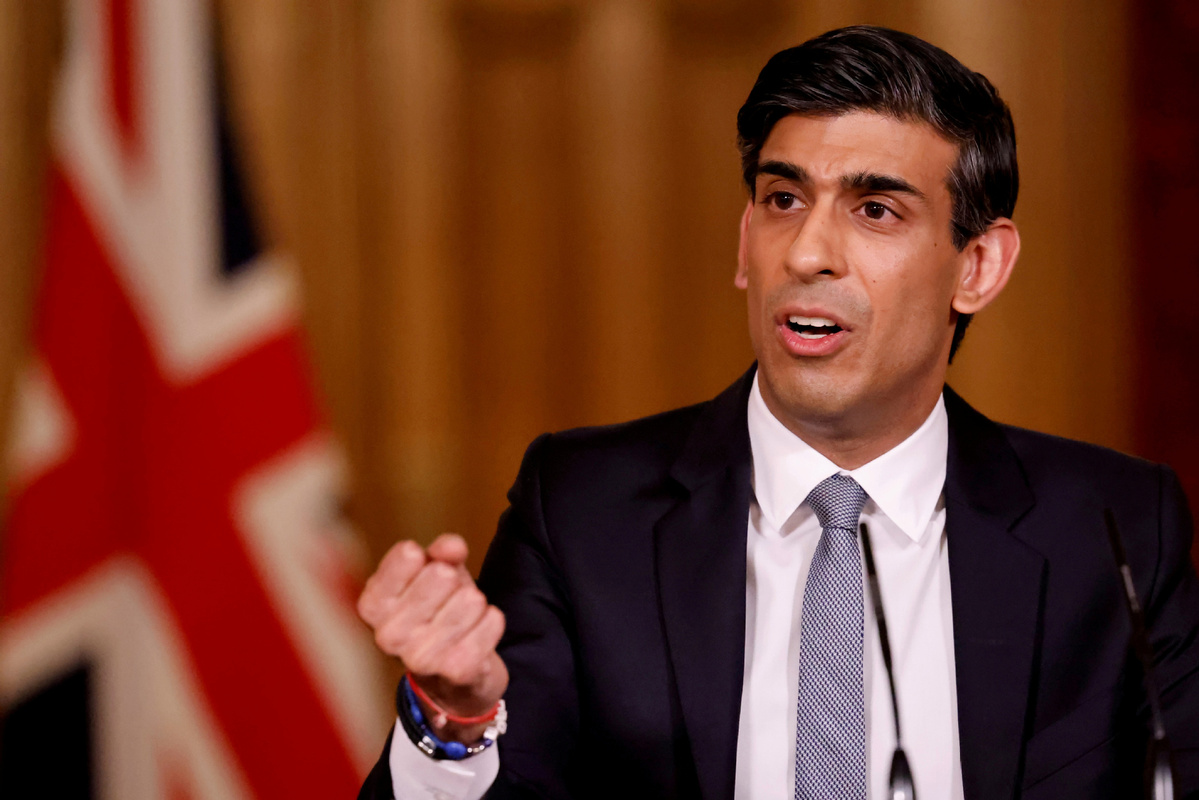UK property sector slows during March after spike


The recent scramble to buy property in the United Kingdom became less frantic in March because of uncertainty around the continuation of a tax break on house sales.
In the end, Chancellor of the Exchequer Rishi Sunak announced in his budget in early March that the so-called stamp-duty holiday, which had been slated to end on March 31, would continue until the end of June-and beyond in diluted form-sparking the housing market back into life.
But the initial uncertainty was enough to cool the market momentarily and lower prices after pandemic-defying busy months in January and February.
Robert Gardner, chief economist at the lender Nationwide, told the Financial Times the "softening of demand" ahead of the deadline revealed the sensitivity of the housing market, which had been made "buoyant" by both the tax break and other stimulus measures aimed at offsetting economic damage caused by the novel coronavirus pandemic.
"The longer-term outlook remains highly uncertain," he added; explaining that the nation's overall economic recovery and the health of its job market will have a huge impact on future demand.
Nationwide's much-watched house price index, which rose by 0.7 percent in February, fell by 0.2 percent in March. However, despite the reduction, house prices in March were 5.7 percent higher than they were during the same month last year, during the early days of the first national lockdown when the nation was gripped with economic gloom.
The Reuters news agency said the slowing in March was, however, more pronounced than expected. It had previously polled economists and found they were anticipating a 0.4 percent increase in house prices and a 6.4 percent year-on-year improvement.
"Given the wider economy and the labor market has performed better than expected in recent months, the slowdown in March probably reflects a softening of demand ahead of the original end of the stamp duty holiday," Reuters quoted Gardner as saying.
Britain's housing market has also been boosted by a pandemic-related trend that has seen renters turn their backs on large cities in favor of purchasing a home in smaller towns and villages, where they can access more space and fresh air. Such moves have been made possible by individuals and companies realizing that work that was previously done in cities can be done remotely.
The stamp duty holiday means people are exempt from paying tax that would previously have amounted to 2 percent of the purchase price of main homes worth between 125,000 pounds and 250,000 pounds ($172,000 and $344,000) and 5 percent on main homes worth between 250,000 pounds and 925,000 pounds. Tax rates are higher for second homes and investment properties.
The London-based business-focused newspaper City AM said the average UK house now costs 232,134 pounds.
































